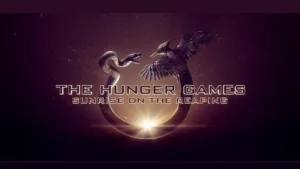Over the past decade or so you have likely been subjected to your fair share of moaning and groaning over how progressive media is these days. The release of any new movie or show is met with constant debate over political agendas being pushed and how “it didn’t use to be like this”. Many lament over the loss of the good ol’ days. When the entertainment industry was fun and void of any social commentary. Except, that has never actually been the case.
Political commentary in pre-film entertainment
Entertainment has always referenced the political. We can see this, looking all the way back to classic Greek theatre. Live performances, while still relevant today, is the film entertainment’s predecessor. It was not at all uncommon for ancient Athenian playwrights to mock political figures or societal norms. Playwright Aristophanes, famously faces legal consequences for his play The Babylonians‘ criticism of Athenian politics and participation in the Peloponnesian War. He later wrote the play The Knights to criticize the politician that charged him. Another writer, Euripides was far from what we would consider a feminist, wrote Medea. A play that examined the ancient Greek’s treatment of women. While not exactly a call for equality, it forced the audience to question societal and gender norms and their effects.
Moving ahead to the period of Tudor England. Shakespeare’s plays were loaded with political meaning. An obvious example being Julius Caesar. Seemingly written to warn about the consequences of political advancement and concern over the lack of an heir to the English throne. Throughout the play, good intentions are snuffed out in the name of power and greed. There is also commentary on mob mentality and the ability to sway an uninformed population. Ancient works like these are written with political context of the time at the forefront. As are modern stories.
Horror and politics: What a nation fears most
When discussing politics and film, it is impossible not to bring up horror. The genre captures what it is a society is afraid of at that time. It was no coincidence that in the years after 9/11, American horror boomed with gratuitous violence and torture. It was the first major attack on U.S. soil since Pearl Harbor citizens watched it play out live on T.V. The violence exposed to people from watching the attacks as well as footage of the “war on terror” encouraged the genre to become more intense and shocking.
Certain tropes in horror carry political meaning and are used when relevant to current events. In 2024, the U.S. election year after the overturning of Roe v. Wade, there were three horror movies in which pregnancy was forced onto a woman. Another common trope of horror is that of vampirism. Vampires often represent the wealthy. Partially because an immortal being with all the time in the world would likely amass some kind of wealth. But, their blood-thirsty nature adds an extra layer of meaning. They drain humans of life in order to sustain themselves. This parasitic and cannibalistic behavior mirrors that of the upper echelons of society. The most wealthy people in the world that continue to take from the lower classes.
Horror and queer stereotypes
Not all social or political messaging in movies is liberal leaning. There are plenty of horror films that are well loved on both sides of the isle that contain dangerous messaging. Silence of the Lambs is just one of many that portray queer and trans people as villains. Adding to existing stereotypes when positive representation was few and far between. The final girl and bury your gays tropes draw on societies’ ideas of who is worth living. So often queer, POC, or characters who dare to drink alcohol or have sex don’t make it to the end of the movie alive.
Military representation
The United States produces it’s fair share of media about the military. So much so that there is a program in which movies and shows that wish to depict the armed forces can receive funding and equipment from the military. That is, if the military approves their script. Stories that show the military in a positive light get this aid. The Top Gun franchise allowed lead actor, Tom Cruise to receive the Distinguished Public Service Award from the U.S. Navy. The movies, which were approved by the military, created a boom in Navy enlistment after each film’s release.
A movie the U.S. Military wanted nothing to do with was Oliver Stone’s Platoon. This film followed a group of solders in the Vietnam war and it included a significant amount of drug use. The pentagon cut ties with the film for this reason, despite drug addiction being a known issue among solders and veterans. Acknowledging that would not be good for their image and would lead to less recruitment.
Movies that are approved because they make the armed forces look good often do so at the expense of the people in which they are at odds. The documentary Reel Bad Arabs explains how these movies can portray an entire country or ethnic group in a horrific light. They often offer no grace to the average person in these communities. Instead, many are stereotyped as violent, dumb, or backwards.
A lack of media literacy
From online debates to family gatherings, the word “woke” has likely been uttered countless times by frustrated conservatives like its on a task list every media company has to tick off before releasing a new film or show. The release of the 2023 Indiana Jones film comes to mind as a perfect example. Leading up to the film’s release, a large portion of the franchise’s fanbase dreaded the idea of their favorite action hero metaphorically neutered by the modern liberal mob. These fears were only heightened with the casting of Phoebe Waller-Bridge. The concern was that this new leading lady would steal Indie’s thunder. That filmmakers would giver her all the best dialogue. That she would school Jones on the morality of archeology and the franchise would leave him as a washed up shell of the hero he once was.
But, what of the original films? Are these fans forgetting that their beloved hero was extremely fallible to begin with? Yes, Indiana Jones was an action hero who was clever, adventurous, and of course, kicked ass. But, he was also portrayed from the very beginning as not a hyper-masculine, indestructible force. He had a deep seated phobia of snakes, sought help when needed, and experienced emotions of sadness after failures (which happened often). As far as female counterparts go, his love interest in the first movie was loud, smart, was seen outdrinking men twice her size and holding her own in a fight. Far from the feminine ideal many would expect. So, what exactly were these fans afraid of?
Much of this panic around “wokeness” in media is from a lack of media literacy. These Indiana Jones fans were unable to recognize slight progressive elements in the original films for the same reason they were so fearful of them in the new one. People expect characters to be perfect. This is true for many liberals, too. If a female, nonwhite, or LGBTQIA+ character is imperfect, especially by the end of the film, many will dismiss it as completely negative representation. This is why much of the concern around The Dial of Destiny burnt out upon release. Waller-Bridge’s character is deeply flawed. Not only does this make for an engaging story, I would argue that it is more progressive than most perfectly good female characters. There is nothing feminist about showing women as perfect creatures. There is nothing liberating about showing women as anything less than full fledged human beings.
Flaws in characters exist to make them more entertaining and relatable. They also encourage thoughtfulness and discussion. Yes, Waller-Bridge’s character’s stealing and selling of artifacts isn’t morally sound, but taking this away not only damages the plot but the audience’s ability to appreciate her as a fully fleshed out character. More and more, we are encouraged to abandon nuance in media consumption. This inhibits our ability to find the value in art or even create meaningful art ourselves.
Your favorite movie is political: Now what?
People are so concerned about “woke” media, yet they fail to acknowledge that much of their favorite films of the past contain some sort of societal critique or political messaging. Movies and T.V. shows are art, and like all other artistic forms, they are colored by the worldview of it’s creator. Their ideals, experiences, and opinions bleed into these stories whether the creator intended it to or not. This makes every movie or show, no matter how innocuous, politically relevant in some way. A lot of the commentary in these films flies under the radar for various reasons. Whether the movie itself is more trivial or comedic or the messaging it contains is subtle or centrist, it still says something about the context in which it was created.
I’m not saying we should all be watching T.V. with a notepad and discussing themes and theories with our friends on the weekend. We can choose to just watch a movie for the fun of watching a movie. There is nothing wrong with engaging with media in a way that is strictly for enjoyment when you don’t want to unpack the deeper meanings of the story and visuals. I think that we should be aware that art does not exist in a vacuum. If a show calls you to think deeply about the story portrayed, it shouldn’t be shied away from. Media literacy is not just a skill, but a tool that allows us to better understand the real world, just as much as fictional ones. Yes, all media is political in some way. Whether or not you feel like engaging with that aspect is up to you.
Check Out:
Endangered Languages Bridging Tradition and Technology
The Rapid Rise of the 4B Movement in America












Be First to Comment